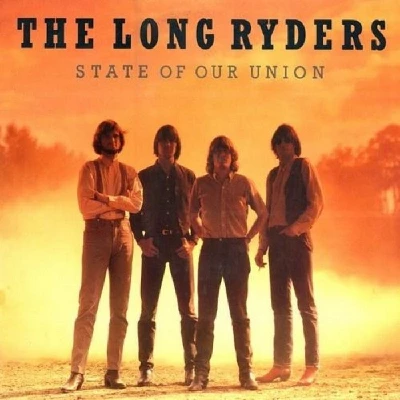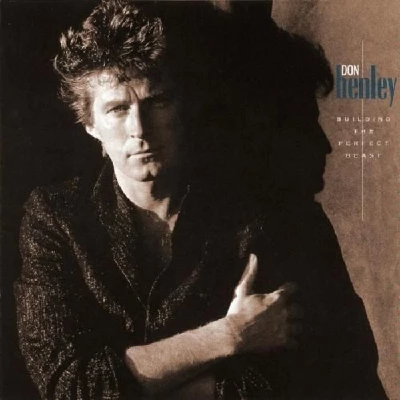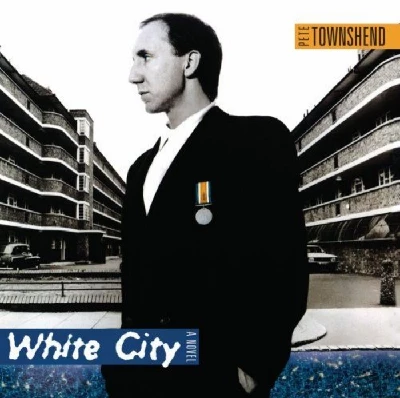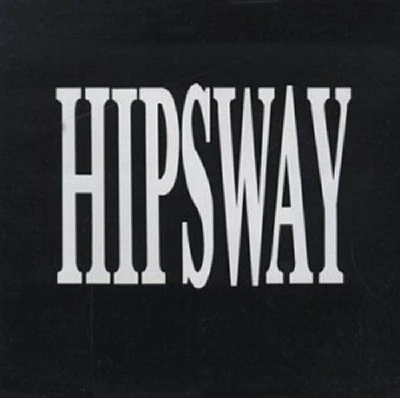Miscellaneous
-
Vinyl Stories
published: 30 /
9 /
2016

Magazine Editor John Clarkson remembers his youth and university days in Loughborough and his penchant for home taping way back in the Eighties
Article
Our editor John Clarkson offers a change of format in this month's Vinyl Stories. Whilst still on the theme of the beloved black and sometimes multi-coloured wax, he deviates away as we did a few editions ago down the path of the cassette. Remember them? You know the C30, C60, C90 rectangles of plastic that had lengths and lengths of tape inside them that always found its way out and got tangled around everything including your sister's plastic horses? John recalls his youth and adolescence at university in Loughborough and some of his favourite albums of that time and this. Taking us back to the start of the Eighties here is John Clarkson's Vinyl Stories;
"It is thirty years ago this summer that I left university. Loughborough University (or Loughborough University of Technology as it was then) is a long way, almost three hundred miles from my home city of Edinburgh.
It was too far a distance, therefore, to carry a record player on the six hour journey on the train at the beginning and end of each term. Although CD players first came onto the market in 1983, the year that I began my first year at university, they and CDs were still too prohibitively expensive at that stage except for all but the richest of students to own. Like I guess a lot of students away from home in the mid-1980s and in a similar situation, I found myself listening to music on cassette for the three ten week blocks of the year I was living in Halls of Residence and then on vinyl for the remaining twenty two weeks of the year when I was back home.
I binged on music in the three years between 1983 and 1986 I was at Loughborough, and, while I have since upgraded in many cases to CD or vinyl, still keep over three hundred cassettes in the living room of my flat. Most are from that era. What is on a lot of them - Lou Reed, the Velvet Underground, the Pretenders, David Bowie, Joy Division, New Order, Iggy Pop, Thin Lizzy, Pink Floyd, Orchestral Manoeuvres in the Dark, Immaculate Fools, Propaganda, Tangerine Dream and the Sex Pistols – reflect not just my tastes then but also today.
Here are the stories of some of those tapes, both then and now:
1. Long Ryders/State of Our Union
While I didn’t have a record player on campus with me, I was a member of the Record Library. Several of my friends – those who had their own cars or who lived near enough Loughborough for their parents to drop and pick them and their gear up at the beginning and end of terms – did, however, have turntables or hi-fi systems.
The Record Library had been running on campus for many years. For £3 a year, it offered its one hundred or so members the opportunity not just to hear just released new records, but also to work through its archives, which extended back to the 60s.
On Wednesday nights, my friends and I would traipse across campus to the small community hall at the edge of the student village where the Record Library would meet for an hour at 6 p.m. We always tried to get there early, so that we could be amongst the first in the queue to get through the door and see that week’s new releases which the organisers would lay out on a table just beyond the entrance.
Illegal downloading is nothing new really. Home taping was the precursor to that, and I can see now that we were pretty unscrupulous really. There were four of us – three with record players and me without but enlisted into the group so that the others could extend their borrowing. We were allowed three each from what I remember, would take them back to our Halls of Residence rooms, tape the best of them and the ones we wanted to hear again, four or five at a go sometimes (the deal was in return for making up the numbers my friends would tape me what I wanted), and then bring them back and do it the following week all over again.
We didn’t give it much thought at the time, but I can’t say now that I am especially proud of myself in hindsight at the amount we taped. I know now from working with musicians how dependent artists, especially indie artists – whose records were a lot of those we were illegally recording - are on sales so that they can make the next record or go on tour. We, however, certainly weren’t alone. We were doing, although perhaps on a slightly larger scale, what ninety percent of the other members of the Record Library and for matter many other students were also doing.
It was also a fantastic musical education. One of the acts that I would probably not have heard at the time if it hadn’t been for the Record Library, as they were rarely played on the radio, was the Long Ryders.
Of all those albums that I recorded at the time, their 1985 second album ‘State of Our Union’ is the one that I played the most. It was, although I did not know it at the time, my first introduction to Americana. Sid Griffin, their leader, has since described the Long Ryders as the forefathers of the country-punk movement, and he is right. There was no one else quite like them in the 1980s. The songs on ‘State of Our Union’, ‘Looking for Lewis and Clark’, ‘Lights of Downtown’ and ‘Capturing the Flag’ still stand up well, and merge what are essentially country tunes with abrasive punk melodies.
The Long Ryders were short-lived, breaking up because of a lack of record sales in 1987 (and probably a lot of home taping), but have since gone on to be seen as influential. They reformed earlier this year for the first time in many years to promote a new box set, ‘Final Wild Songs’ and to play a short European tour. I interviewed Sid at the time for Pennyblack, and afterwards travelled a long way to see them.
As they came to the end of their ninety minute set with ‘Looking for Lewis and Clark’, I thought of that nineteen-year-old boy listening to them for the first time in a Halls of Residence room and where that home cassette recording, backed on the other side by the Jonathan Richman album, ‘Jonathan Sings’, had taken him.
2. Don Henley//Building the Perfect Beast
‘Building the Perfect Beast’ is another album that I borrowed and taped from the Record Library and one that I had almost forgotten about until a few weeks ago.
My girlfriend and I were offered guest passes to go and see JD & The Straight Shot, who were supporting Don Henley at the Glasgow Hydro, and stayed on to see Don. It was a gig that I enjoyed far more than I expected to – Henley certainly has the ability to take something insular in his song writing and to speak for a lot of us – and, while I have listened to the single ‘The Boys of Summer’ many, many times since, it led to me playing ‘Building the Perfect Beast’ for the first time in almost thirty years.
I felt about it then as I feel about it now, that it is not a terribly good album, one that is largely killed for me by 80’s excesses, and caterwauling backing singers and bombastic over-production. There are, however, some fine songs. I like ‘Drivin’ with Your Eyes Closed’ a lot, and the single and huge hit of the time ‘The Boys of Summer’ is tremendous.
That single entered the Top Ten in the UK in February 1985, at exactly the halfway point both through my second year at university and also my time there. Even then though it seemed things were already starting to draw to a close.
My immediate circle of university friends – several of them the people that I went to the Record Library with - had all started on the same day in first year. Some of us were on sandwich four year courses, and would spend the next year in industry. Others, myself included, were on three year courses and would be gone, finals completed, by the time they got back.
At nineteen, I was starting to become very self-conscious for the first time that everything changes. With its line about the “Deadhead sticker on a Cadillac”, its theme about looking back on a long gone relationship, and its arty French New Wave-influenced video which showed Don as a child and then as a young and middle-aged man, ‘The Boys of Summer’ nailed for me what I was starting to realise as adolescence was coming to an end – that nothing is permanent. Whenever I hear ‘The Boys of Summer’, I think of those friends and that time.
3. Pete Townshend/White City: A Novel
I didn't just home tape music from the Record Club, but I also bought a lot of music cassettes too during my university years. I had watched Pete Townshend performing 'Give Blood' and other songs from his new 'White City: A Novel' album on 'The Tube' one Friday in November 1985 with his super group Deep End. As it transpired, that was Deep End's only ever television appearance and they would only ever play three gigs in their short lifetime.
My grandmother had sent me some money for my twentieth birthday a few days before, and I was impressed enough to go into town to Castle Records -which was in Loughborough's only shopping arcade - to buy that and the Waterboys' 'This is the Sea' on tape the next day. I have seen the Waterboys' maybe fifteen, sixteen times during those years and have never come away disappointed from their gigs, but it is 'White City' which holds the more resonance for me.
A few days afterwards, I picked up in one of the poster sales that the Student Union would regularly host a huge gig poster, advertising two of those Deep End concerts earlier that month at the Brixton Academy, and with the front cover of 'White City' and Townshend printed on one side of it. I displayed it above my bed in my Halls of Residence room for the remaining two terms and a bit that I was at university, and that album more than any ever seems a symbol to me of Loughborough and my final few months there.
I have always liked and admired Pete Townshend. He seems the most fallible and humane of rock stars, someone who like the rest of us screws up regularly but then who always has the guts to come clean and admit it. A concept album named after and about the infamous run down housing estate in West London near where Townshend was raised, 'White City: A Novel' is rammed with angry, searing protest songs such as 'Give Blood', 'Face the Face' and 'White City Fighting', and written and recorded during the years the Who were off the road, is one of the most neglected of the albums in Pete Townshend's catalogue.
'White City: A Novel' also serves as a symbol as well of my grandmother. We were very close, but she always thought that I was too bookish as an adolescent. She was probably right. She was about most other things. She was kind with money, but whenever she gave me anything she would often tell me to buy something other than a book. I didn’t always but she would have been pleased that I listened to her on this occasion.
My grandmother died in 1992 just short of her 86th birthday. She was an enormously stabilising, influential effect on my life. I dream about her often and think about her most days, and again always when I am listening to 'White City; A Novel'.
4. Hipsway/Hipsway
Talk Talk/The Colour of Spring
I bought both 'Hipsway' and 'The Colour of Spring' in my final term at Loughborough in Castle Records. With the bigger cities of Nottingham, Leicester and Derby all within twenty miles of it and not that much there other than the university, Loughborough is a town that many of its students rarely return to after they leave.
I have only been back twice in the thirty years since I left, the first time in 1986 a few months after I graduated to see some of my old friends. I caught a stomach bug on the train on the way down and spent most of the weekend in the bathroom throwing up. The second occasion in 2000 was more successful. I had gone to stay with an old university friend who lived in a village near Leicester, and we went back onto campus for the afternoon and then afterwards into town.
Castle Records was still there then, its former vinyl and cassette racks now largely taken over by CDs, but with the same portly fellow behind the counter, a few more grey flecks in his beard but otherwise little changed. I understand, however, that it is now also finally gone, a victim of record shop recession in 2007.
On my last day at Loughborough University my dad, - a then university senior lecturer - had organised a business trip to nearby Nottingham University and came by in the early afternoon to pick up me and three years of gear (including a Pete Townshend poster).
It was the day of the final results and I was due in Edinburgh the next day for an interview for a job that I ultimately wasn’t to get. The results were due out at 4.00 p.m. and we spent what was for me an increasingly nerve-wracking couple of hours after we had packed the car going to say goodbye to friends and walking about the campus, before driving over to the quad where the results were to be posted.
At 4.00 p.m. an administrator walked across the quad and stuck the results to a notice board. I gathered around with my classmates, saw that I had passed with a Third and had just about scraped my way through as was the case usually with me when it came to most things academic, shook a few hands and by 4.05 p.m. I was back in the car and we were heading North. I never saw most of my classmates again.
The Scottish group Hipsway were a new find, discovered recently after I had seen the video for ‘Ask the Lord’ on ‘Whistle Test’. I had followed Talk Talk since they had released their eponymous debut album three years before in the summer of 1983. Their best work for me was still yet to come two years later with ‘The Spirit of Eden’, which I feel is their masterpiece and was to become one of my favourite albums of all time.
My dad, glad simply that I had passed, was happy for me to play what I liked on the car’s tape deck, and I remember playing both albums that afternoon as we made the long journey home.
That afternoon that my university education came to a close my tape collecting also largely drew to a halt. I would never listen to tapes so regularly again. With my return to Edinburgh, I also returned to vinyl."
Play in YouTube:-
Picture Gallery:-


